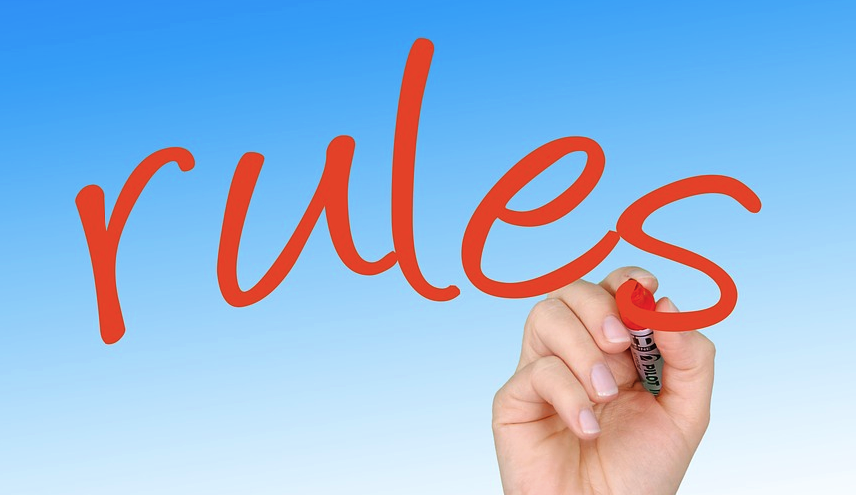Contest Rules Templates
Organising a contest can be challenging, not only in terms of multitasking but also from a legal point of view. Complex regulations, most of which differ depending on the platform you use, can be difficult to understand and follow. However, if you have a goal and are ready to make every effort to achieve it, nothing can get in your way. In this article (which by no means contains legal advice), we analyse how to make contest rules management easier for you.
The concept of contest rules and regulations

Contest rules set the boundaries in relationships between entrants, judges, organisers, and any other parties involved in the process. They usually come in the form of comprehensive written instructions. Such regulations exist to communicate all the “hows” and “whys” related to contest engagement. You’re obliged to follow these contest regulations in the following situations:
- You fall into the category of either contest organiser, participant, sponsor, judge, or evaluator.
- You have to guide contest participants through the process of entering, communicate deadlines, or define entry requirements.
- You want to ensure you keep the contest within the law.
- You predict certain violations and ensure measures will be taken to prevent them.
Common contest rules
One of the main questions is how to align your particular contest platforms regulations with the law. Well, we don’t want to disappoint you, but it really takes a lot of work to get there. The first step is checking the official guidelines for promotional activities on the platform you plan to use. Second, brainstorm all contest-related circumstances and actions to get the full picture of your event. Last, but really important, match platform regulations with the rules you want to specify for your contest. Here is the list of common aspects that are often discussed in contest rules:
- Age, gender, geography, and demographics in case any of them impact entry conditions
- Contest dates and deadlines
- Information about an organising entity or hosts as well as the goals of the contest
- Entry methods, including the information about upload formats, the number of allowed submissions, etc.
- The mechanism of judging and winner selection
- The prize that a winner(s) will be entitled to
- The date and method of winner announcing
- Information about the collection of entrants’ personal data and opt-in/opt-out conditions
- Acknowledgement of sponsorships and endorsements
Differences in contest rules across different social media platforms
Complying with the regulations of a specific platform is one thing, but when you run cross-platform contests, things can get confusing. Of course, there are some regulations that you’ll encounter wherever you go: 1) sponsors can in no way be associated with a contest, 2) participation rules should be clearly defined, 3) you should abide by local and country laws. This is not as easy as you may think though…
It’s a common practice for event planners to maximize contest engagement through the use of multiple channels. Before taking this on, you should get acquainted with the contest rule differences that exist on popular social media platforms:
- One of the principal rules you should keep in mind when starting a Facebook contest is that it can’t be run on personal profiles.
- If you want your friends to discover a contest, the only option is to change your personal profile into a Facebook page. However, you can’t directly ask your friends to get involved or share your contest.
- If something goes wrong with your contest, Facebook can’t be liable.
- You can’t ask anyone to like the page in order to enter a contest.
Read: Facebook promotion guidelines here.
- You can’t ask people to tag themselves if they aren’t in the photo.
- You cannot tag random users.
Read: Instagram promotion guidelines here.
- Contest organisers can demand that only relevant hashtags be used.
- Twitter doesn’t allow the use of multiple accounts by one person in the contest.
- Organisers are required to clearly define contest entry rules, and retweets and the use of many accounts is prohibited.
Read: Twitter promotion guidelines here.
Contest rule templates and how to use them
No matter which platform you use, your contest rules have to rely on responsive promotional regulations. To avoid any legal pitfalls, consider consulting an experienced attorney before setting up your rules page.
If you look at the entry regulations on many contest platforms, you may be overwhelmed by the length of these rules. But don’t panic. There are many online contest rules templates that you can use. Here are the core steps you should take when using a pre-made contest rules template:
- Ensure you’re authorized to use a template within your contest.
- Verify the rules stated in a template against any platform-specific regulations.
- Download a template.
- Remove or add points based on your particular contest.
- Fill in the relevant data, like names, dates, and titles.
- If required, indicate the provider of your social media contest rules template.
To get an idea of how this works, check out the following providers of ready-to-use contest rules templates:
- Rocket Lawyer, a large gallery of templates for diverse online contests, from school competitions to marketing sweepstakes
- Facebook contest rules template by Wishpond
- Sweepstake Rules Template developed by Priori Legal
Conclusion
Before you start engaging your audience through online contests, you have to first get acquainted with some legal implications. Depending on the promotional regulations established by the platform you decide to use, there will be quite a lot of rules to follow. From Facebook to dedicated contest platforms, the rules regulating promotional activities can differ greatly. However, you still need to comply with them. Through the use of a pre-made contest rules template, you can simplify your task considerably.
